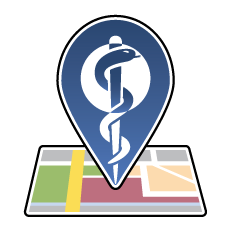Map & Data: National Academy for State Health Policy (@NASHPhealth)
Website: https://www.nashp.org/2022-state-of-the-states-addresses-reflect-realities-health-economic-recovery/
Beyond The Map: 2022 State of the State Addresses Reflect Realities of Health, Economic Recovery
From NASHP:
Governors use their annual state-of-the-state addresses to showcase successes and accomplishments over the past year and to define their policy priorities for the year ahead. This year 36 states will hold gubernatorial elections, so many governors use their state-of-the-state addresses to build their case for reelection and visions for the future. By late February, 41 governors had delivered speeches outlining plans to address a wide variety of health and economic related issues in the coming year, as the immediate health-related emergency of the COVID-19 pandemic has faded. Most governors reflected on the incredible response from frontline responders and public health agencies’ ability to meet the needs of the crisis but focused their future plans on how to emerge from the pandemic and respond to the economic and mental health crises that remain.
Priorities diverged from their 2021 health care and social determinants priorities. While many governors continued to address social drivers of health, citing affordable housing and access to healthy food and the environment as key levers to improve health, more highlighted livable wages, support for the workforce and business, and education. Notably, in comparison to last year, many more governors highlighted the need to address health care workforce shortages that have been exacerbated by the COVID-19 crisis. Governors also mentioned their priorities for investing American Rescue Plan Act (ARPA) funding.
These issues do not exist in isolation; many of these topics, including mental health, education, workforce, and equity, are woven throughout the speeches and require a whole-of-government approach to address. Below are highlights from key themes that the governors addressed.
Health Care Workforce
This year, against the backdrop of ongoing COVID-19 hospitalizations and concerns about burnout, 20 governors talked about their plans to address workforce shortages and bolster the health care workforce. In 2021, only eight governors mentioned plans to support or bolster the healthcare workforce. Recruitment was the overarching theme this year, with fifteen governors talking about how to successfully train more nurses, doctors, or emergency responders, how to use scholarships or loan forgiveness programs to incentivize entry into the health care field, and how to bring more health care providers into the state from elsewhere.
Governors of New York, South Dakota, and Vermont talked about recognizing out of state licenses to attract qualified providers to their states. In Alaska, Georgia, Hawai’i, Maine, New Mexico, and Oklahoma, governors talked about expanding education programs to train more nurses and other health care providers. These proposals included plans for adding faculty to existing programs, opening new educational programs, and admitting more students to increase the number of graduates. Gov. Reynolds of Iowa announced a new apprenticeship program for high school students that would allow them to become certified nursing assistants before graduating high school. And governors in Iowa, Illinois, Rhode Island,and New York mentioned plans to offer additional scholarships, tuition reimbursement, or loan forgiveness for students training to enter the health care workforce—particularly if they stay in-state after graduating.
In addition to recruitment, nine governors also focused on strategies to retain the existing workforce—particularly those individuals who are experiencing the exhaustion of the COVID-19 pandemic. In Alabama, Colorado, Maine, New York, and Wisconsin, governors talked about increased compensation for those in the healthcare field, through pay raises, higher Medicaid reimbursement rates, or bonuses. Gov. Polis of Colorado and Gov. Pritzker of Illinoismentioned plans to wave licensing fees for healthcare providers in their states.

